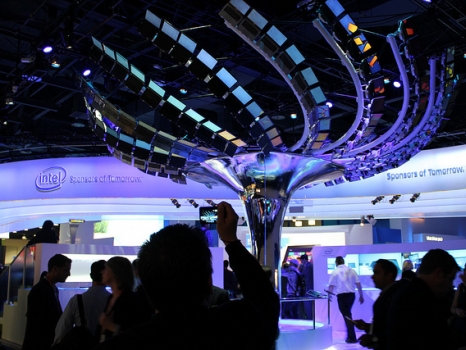 Intel sprung a surprise as it announced the next-gen tablet platform, Bay Trail, supporting Android and Windows 8.The road map of Bay Trail appears to be more aggressive than previously planned and expected to be launched in lats 2013. The new platform features quad core processors built on 22nm process. Bay Trail doubles the performance of the current generation and will likely support full-day battery life. Systems based on Bay Trail are expected to be available for this year’s holiday shopping season.
Intel sprung a surprise as it announced the next-gen tablet platform, Bay Trail, supporting Android and Windows 8.The road map of Bay Trail appears to be more aggressive than previously planned and expected to be launched in lats 2013. The new platform features quad core processors built on 22nm process. Bay Trail doubles the performance of the current generation and will likely support full-day battery life. Systems based on Bay Trail are expected to be available for this year’s holiday shopping season.
Intel also introduced the Lexington platform, which targets the value mobile smartphone segment. Intel estimates that this addressable market could reach 500mn units by 2015. The platform consists of Atom Z2420 processor and XMM 6265 HSPA+ modem, and is optimized for Android. Intel announced designs wins with Acer, Safaricom, and Lava. The existing cost-optimized integrated solutions based on ARM A7 architecture are better suited for the low-end smartphone market like in India and China.
The mainstream next-gen Core processor, codenamed Haswell, is on track to deliver in 2013. However, Intel has pulled in the timeline for the low-power Haswell processor. The new 7W Core processor is in full production today. Acer and Lenovo plan on launching systems with the new processors in Q2 2013. In the performance segment, Intel plans on launching 22nm parts this year, succeeding Clover Trail.
Given Intel’s aggressive push into 22nm SoC process, it would be interesting to see its impact and how it manages and optimize the capacity of two different processes (Core and SoCs).